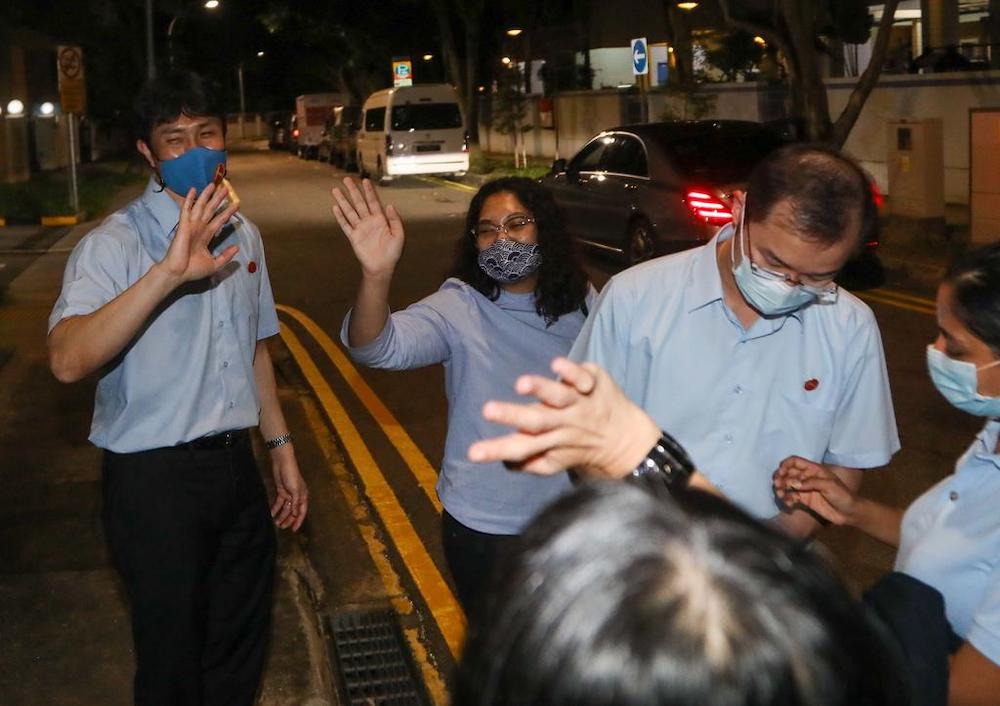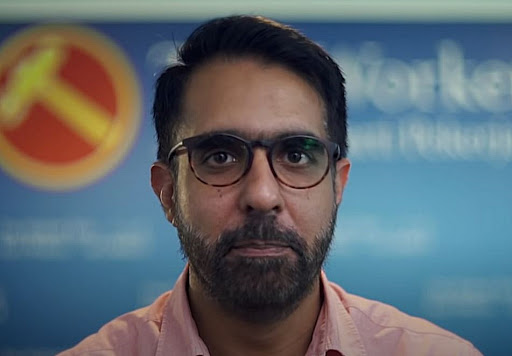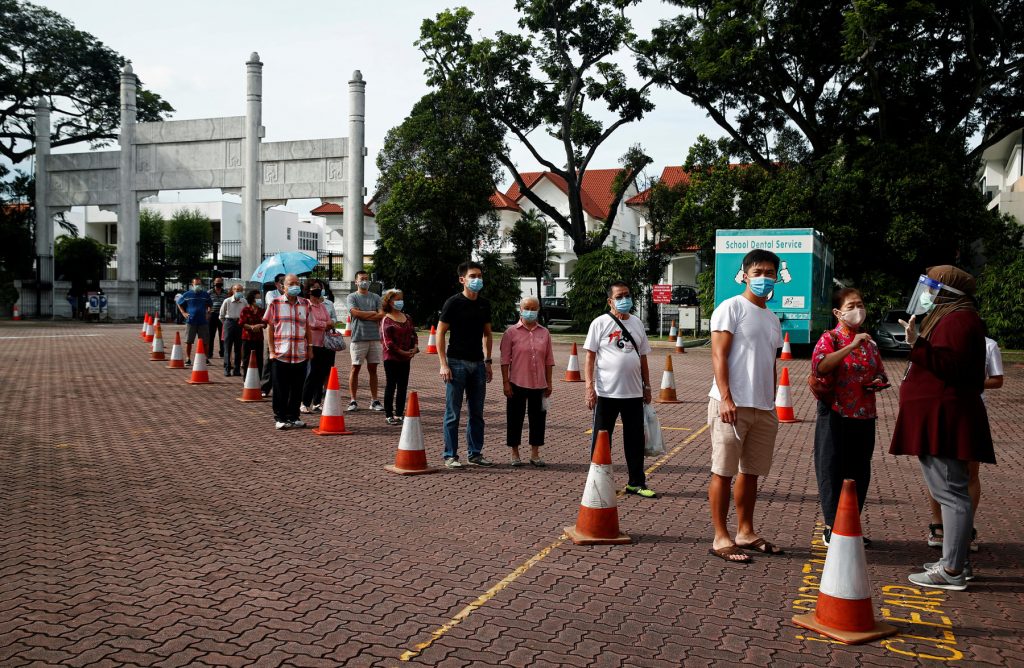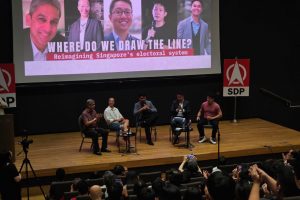Disclaimer: RICE does not support or endorse any political party.
This morning I rolled out of bed, sleepy, confused, not sure if last night was a dream. I checked my phone again, just to confirm that the Workers’ Party did win Seng Kang, and it wasn’t mere fantasy.
And then it all came tumbling back: the euphoria, the momentary disbelief, the gratitude and relief that has since mellowed into cautious optimism.
Make no mistake: last night was historic. The Workers’ Party—against all odds (*cough* gerrymandering, the edge of incumbency, gutter politics, POFMA)—managed to wrestle yet another GRC in Sengkang. He Ting Ru, Jamus Lim, Louis Chua, and Raeesah Khan join the Aljunied team and Hougang’s Dennis Tan as part of ten elected opposition MPs, the highest ever since independence. Raeesah Khan will be the youngest MP to be elected into parliament in modern history. What a queen.

I celebrated with those who had similarly leapt for joy when sample counts were announced, documenting their euphoria on social media. I celebrated with the uncles and aunties gathered in coffee shops, many of whom were waving flags and blowing horns, swaying the hammer to the beat of festive chants of “Wor-kers’ Party”.
I celebrate, not just because of my political leanings, but also because it felt like a rejection of gutter politics. As a young, first-time voter, I am hopeful that this election could mark a turning point in Singapore’s political culture. Our voters have signalled that they do not take kindly to cheap shots and dirty tricks.
After being told that we’re part of the “vocal minority” for so long, have our views dismissed as youthful naiveté, or lectured for being “ungrateful”, it feels almost vindicatory to see our voices translated into an overall decline in vote share for the ruling party and a growing share of opposition seats.
We may be an echo chamber, but we are—or at least, will be—a powerful force to reckon with.
We believe in fair play, we believe in democracy, and we believe in progressive causes that the establishment has pooh-poohed as “Western liberal ideologies”. We also reject the tired narrative that Singapore only cares about “bread and butter” issues (an utterly meaningless phrase), or that we can be easily bought with traditional pork barrel politics (ah, the joys of covered walkways and lift upgradings).

I hope the PAP does some serious soul-searching, and asks itself why it did not earn the “strong mandate” it so desired. Perhaps in its use of dirty tactics, and liberal revisions to our Constitution, they have lost the moral authority they once claimed as the party that will do the right, but unpopular thing. (Now they just seem to do wrong and unpopular things).
The Workers’ Party, and to lesser extents, the Progress Singapore Party and Singapore Democratic Party, have won us over with their brand of inclusivity, humility, and empathy. I hope that all parties remember that sincerity and competency are not mutually exclusive. Gone are the days of elite mandarin worship—give me compassionate servant leadership!
History is made in micro moments, and this election surely constitutes a landmark: a generational moment of political awakening. The last time I dared to hold such hope was in 2011, when the Workers’ Party won Aljunied by a bare margin.
Micro moments have ripple effects. They stimulate our political imagination and push the Overton window of political viability. Candidates like He Ting Ru first joined the Workers’ Party after she saw them win Aljunied. Similarly, I hope their Sengkang victory will kickstart a snowball effect, and push more people to step forward and volunteer in various capacities. As Tharman himself has said, a credible and strong opposition not only benefits the country, but also the PAP.

This election also suggests a growing political consciousness that contradicts the supposed apathy that Singaporeans have towards politics. Youth voters have been politically active through memes, Instagram stories, and dedicated political literacy collectives like CAPE.
Whichever side of the political spectrum you lie on, greater political literacy and participation can surely only be a good thing, as long as it does not descend into ideological polarization or vitriolic and divisive language. I think such fears are unwarranted, however. The Workers’ Party has proved itself to be a constructive and sensible opposition that is not interested in the sake of opposing for the sake of opposing.
Still, our optimism has to be tempered.
The “opposition” scene is still fragmented, and could be easily divided in the coming years. The curious absence of ideological politics in Singapore means that voters fragment along anti/pro-establishment lines more so than ideological ones.
This means that two WP voters could hold opposing, and even mutually contradictory views: the young, progressive, anti-xenophobia voter and the stereotypical angry uncle, #SingaporeanFirst voter could both be WP supporters. What this means for party loyalty and campaign messaging in future remains to be seen. Can the Workers’ Party avoid some perhaps inevitable political inconsistencies as it attempts to court both groups of voters in coming years? (Thankfully, the Workers’ Party has toned down a lot on nativist tendencies in this election.)
Further, as both PM Lee and Pritam Singh have said, this is just the beginning, and the hard work really begins now. There is much to be done to address the ongoing public health and economic crisis that would likely intensify in coming months.

And so, I savour the leftover joy from last night even as I brace myself for the coming uncertainty.
Truthfully, I had not dared to hope for a Sengkang victory for the WP. The campaign season this GE had left me thoroughly disillusioned with the political process and quite honestly, contemptuous of the PAP.
Still, there is every reason to hope the PAP will reform itself in the face of greater political pressure (reform, or face future wipe-out). The opposition’s slow but steady in-roads also signals that no one party has a monopoly of ideas, or talent, or power.
Above all, we want diversity, transparency, and accountability. We want to be heard, not patronized with condescending finger-wagging masked as technocratic supremacy. We want a government with heart, and if they have not listened the voters have shown that we are unafraid to cast our displeasure at the ballot box. (Of course, most of us are also happy to give credit where credit’s due, except it has to be earned, not assumed.)
This is for the future historians who might one day sift through an archive of Rice articles to understand how some of us once thought. In ten years, I will remember this: an emerging and dynamic media landscape, the sprouting of progressive roots, and a quiet if beleaguered optimism amidst a pandemic.
This morning, I dared to hope again. I hope I don’t forget this feeling.






